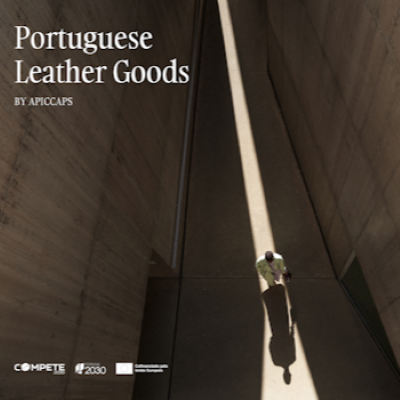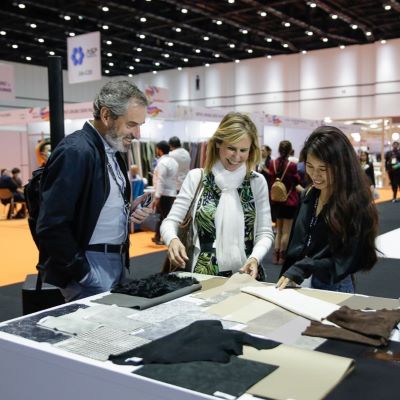Register to continue reading for free
Deborah Taylor from SLF: traceability is the number one challenge facing the leather industry

We spoke to Deborah Taylor, Managing Director of the Sustainable Leather Foundation (SLF), to find out more about the tools the organisation provides to help the leather industry move towards more sustainable practices and the biggest challenges it currently faces
Established in 2020, the Sustainable Leather Foundation (SLF) is a not-for-profit organisation working across continents that aims to collectively improve and educate the world on more sustainable ways to produce and use leather, an industry worth more than 80 billion US dollars a year.
Deborah Taylor, SLF’s Managing Director, who already had experience working with tanneries and brands around the world, recalls that from the outset: “We wanted to go a step further and create something that didn't just look at the environmental parameters, but also considered the social and governance aspects of our industry”. “Sometimes, we forget that we have many high-producing low-income countries that are dependent upon the leather industry for their livelihoods”, she continued.
With this in mind, the SLF has created the Transparency Dashboard tool, which allows users to obtain an instant visual representation of sustainability performance across the three pillars of environmental, social and governance (ESG), using a standard traffic light system.
SLF Transparency Dashboard
Within each module (pillars ESG), “there are parameters that we need to consider. Each of these parameters can be worked in isolation, as part of an individual module or combined”, explains Deborah. “The traffic light system is very simple to understand: if it’s grey, it means the work on that parameter hasn’t started yet; if it’s orange, it means it’s a work in progress, but there isn’t a third-party certification to prove that it’s meeting standards; if it’s green, it’s meeting the internationally required standards, having been audited through a third-party provider; and if it’s red, it means that the company is failing a standard”.The SLF’s Dashboard Transparency thus follows an aim approach that is “accessible, inclusive and modular”, especially “because not every facility can do everything all at once”. “But we do need every facility to start making changes. If we can get a thousand tanneries around the world to make a small change, that could have a huge positive impact, whereas one big tannery that can make a huge change has a very minor impact globally on what we need to achieve”, she highlights.
And because this is “purely designed to ease the burden on industry”, the Foundation included an equivalency programme: “If someone already has a certification, we don’t expect them to reassess for that same element. We map their existing work, and we support them to improve with the remaining parameters”.
“So – she sums up – we provide all the tools to enable a company to do the work themselves, so they don’t need an expensive consultant. The beauty of this approach is that if they do the work themselves, they understand why they are doing it, and it’s more likely to stick. It changes their mindset. And as an industry, we must change the mindset and give equal weight to sustainability in those strategic business decisions, and in the allocation of resources to make business decisions”.
Legislation’s Impact
But what is driving change in the industry? “It’s interesting because for many years certification standards have been a voluntary thing. But that hasn’t worked, it hasn’t gone far enough. Actually, what we have seen is that many companies have only taken onboard an audit because they have been forced to by their brand customers”, which doesn’t lead to a real change in mindset.“Legislation is now being introduced and the incoming regulations, that we know will start to have an effect from next year, have been driven by this perception of not enough being done”. In this context, the SLF wants to “be able to support the industry to meet those legislative requirements in a way that works with them. Certification will be essential to ensuring a due diligence mechanism because it will give organisations the ability to demonstrate they are working on the things they are saying they are working on”.
Deborah believes that “some of the legislation is powerful in a positive way”, but some of the other incoming regulations, namely the one concerning deforestation, will have a significant impact on the industry “because we don’t have clear enough mechanisms in place that everyone can adopt”.
As for consumers, she feels they are not necessarily interested in how things are made. “They are more interested in quality and trust (…). They just need to know that we [the leather industry] know and that we are acting responsibly to make sure that we are not part of any bad practices, such as bad animal welfare, deforestation, pollution, that sort of thing. So, our job as an industry is to instil that confidence”.
Traceability Is Top Priority
“I think our biggest challenge as an industry right now is the harmonising of the need for traceability and transparency against the need to preserve commercial viability and integrity”. She shows real concern about the incoming legislation on deforestation, “because if we cannot prove where our material is coming from, we can’t prove that there’s no deforestation in that material”.“So, traceability is the number one challenge that our industry needs to wrap its head around”, she emphasises. At the moment, there’s a traceability cluster running under the guidance of Cotance, so that the industry can align on traceability terms and definitions and accepted data: “If we are all using the same terms and the same data requirements to provide that traceability evidence, then we have at least a standard that everyone could work to”.
In addition, and as “the legislation that is coming does penalise the leather industry very heavily because they don’t have the leverage to be able to impact the change on their own”, Deborah defends that meat producers must be included. “I am working hard at the foundation to encourage tighter partnerships across the meat industry and the leather industry so that we can ensure the continuation of the leather industry in the future. That’s our biggest concern”.
“Outside of that, we have lots of priorities. Social priorities, and environmental priorities, but all of those lay upon traceability. Because if you don’t know where it’s coming from, you don't know what your risk profile is. Once you know where it's coming from, you know what your risk profile is and can then start working on it and start acting on it and improving on it. But traceability is it”, concludes the Managing Director of SLF.








